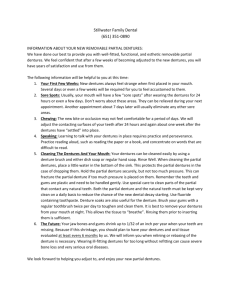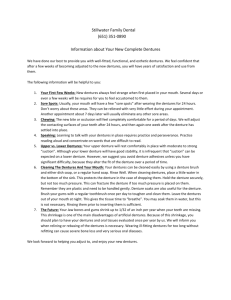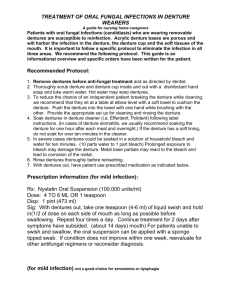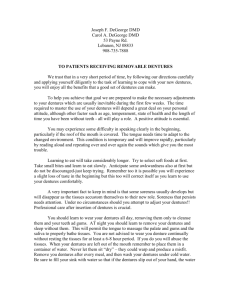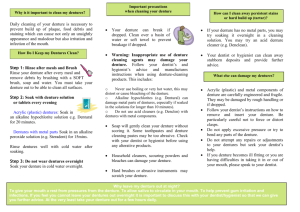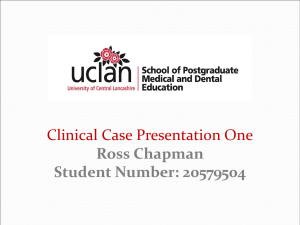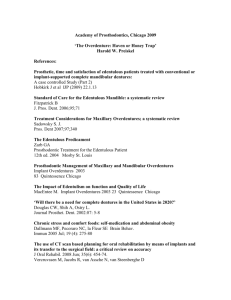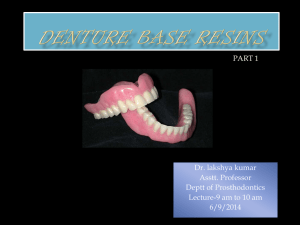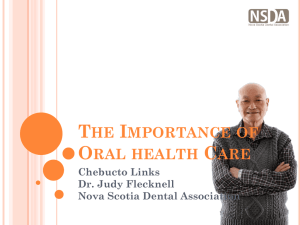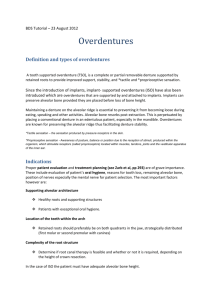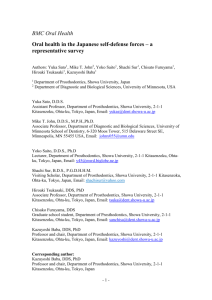Oral Hygiene for Denture Patients
advertisement
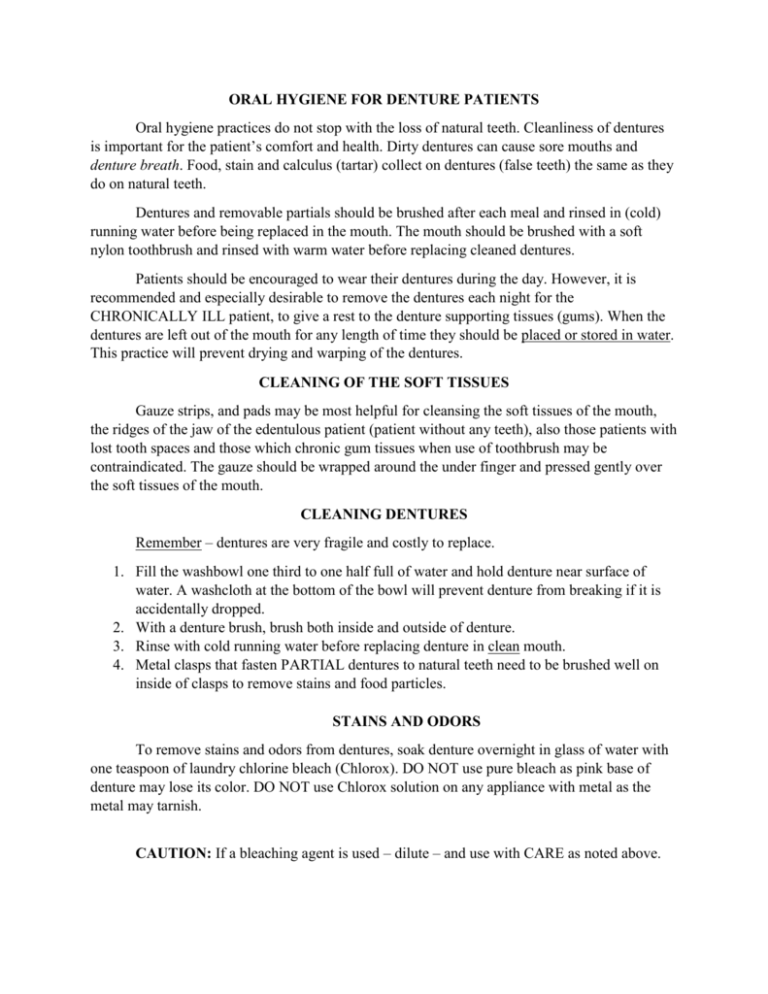
ORAL HYGIENE FOR DENTURE PATIENTS Oral hygiene practices do not stop with the loss of natural teeth. Cleanliness of dentures is important for the patient’s comfort and health. Dirty dentures can cause sore mouths and denture breath. Food, stain and calculus (tartar) collect on dentures (false teeth) the same as they do on natural teeth. Dentures and removable partials should be brushed after each meal and rinsed in (cold) running water before being replaced in the mouth. The mouth should be brushed with a soft nylon toothbrush and rinsed with warm water before replacing cleaned dentures. Patients should be encouraged to wear their dentures during the day. However, it is recommended and especially desirable to remove the dentures each night for the CHRONICALLY ILL patient, to give a rest to the denture supporting tissues (gums). When the dentures are left out of the mouth for any length of time they should be placed or stored in water. This practice will prevent drying and warping of the dentures. CLEANING OF THE SOFT TISSUES Gauze strips, and pads may be most helpful for cleansing the soft tissues of the mouth, the ridges of the jaw of the edentulous patient (patient without any teeth), also those patients with lost tooth spaces and those which chronic gum tissues when use of toothbrush may be contraindicated. The gauze should be wrapped around the under finger and pressed gently over the soft tissues of the mouth. CLEANING DENTURES Remember – dentures are very fragile and costly to replace. 1. Fill the washbowl one third to one half full of water and hold denture near surface of water. A washcloth at the bottom of the bowl will prevent denture from breaking if it is accidentally dropped. 2. With a denture brush, brush both inside and outside of denture. 3. Rinse with cold running water before replacing denture in clean mouth. 4. Metal clasps that fasten PARTIAL dentures to natural teeth need to be brushed well on inside of clasps to remove stains and food particles. STAINS AND ODORS To remove stains and odors from dentures, soak denture overnight in glass of water with one teaspoon of laundry chlorine bleach (Chlorox). DO NOT use pure bleach as pink base of denture may lose its color. DO NOT use Chlorox solution on any appliance with metal as the metal may tarnish. CAUTION: If a bleaching agent is used – dilute – and use with CARE as noted above. HARD DEPOSITS To remove hard deposits on denture, soak denture overnight in WHITE vinegar. (Brown vinegar may stain the pink base of the denture). Denture cleaning aids are commonly available from drug, grocery, and variety store. (However, the American Dental Association DOES NOT recommend the use of liquid denture cleaners that claim to be effective without the use of a brush). LABELING DENTURES Identification of each patient’s dentures may be a major problem in a hospital or nursing home. One simple method of labeling dentures is to type the patient’s name on a small piece of thin paper (onion skin) and attach the paper to CHEEK side of denture with clear fingernail polish. One or two coats of polish should be applied over the paper to protect the label against moisture in the mouth. A commercial denture labeling product is available at drug stores. When new dentures are made, the patient should request that his name be placed on the new dentures.
